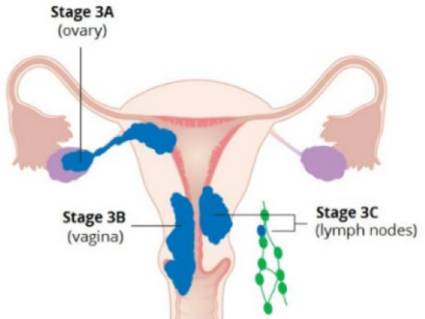The Food and Drug Administration (FDA) has approved three new immunotherapy options for people with advanced endometrial cancer. The approvals are for drugs called immune checkpoint inhibitors.
The first approval, announced on June 14, is for
durvalumab (Imfinzi) given in combination with chemotherapy to treat people with advanced endometrial cancer whose tumors have certain genetic changes that cause them to have a characteristic known as
mismatch repair deficiency (dMMR). Tumors that are dMMR are particularly susceptible to immunotherapy.
The second approval, announced on June 17, is for
pembrolizumab (Keytruda)given along with chemotherapy, regardless of whether tumors are dMMR. And on August 1, FDA approved
dostarlimab (Jemperli) plus chemotherapy for people with advanced endometrial cancers regardless of dMMR status. Dostarlimab had previously been approved, in 2023, for advanced endometrial cancers that are dMMR.
Under the approvals, the combinations can be used as an initial therapy or as treatment for cancer that has come back after certain previous treatments.
In large
clinical trials, the addition of these immunotherapy drugs to chemotherapy led to improvements in
progression-free survival, which is how long people live without their cancer growing.
 Adding immune checkpoint inhibitors to standard treatment provides substantial benefits.
Adding immune checkpoint inhibitors to standard treatment provides substantial benefits.
The most recent data from the clinical trial that led to the dostarlimab approval, called RUBY, showed that
it improved overall survival for people with dMMR tumors and suggested it may improve it for people whose tumors are not dMMR.
“The fact that three clinical trials strongly confirmed that adding an immune checkpoint inhibitor to standard chemotherapy markedly improves outcomes for patients with mismatch repair–deficient endometrial cancer is a huge step forward,” said Elise Kohn, M.D., of NCI’s Division of Cancer Treatment and Diagnosis, who was involved with the trial that led to pembrolizumab’s approval for this use.
“For people with mismatch repair–deficient endometrial cancer, the data demonstrate unequivocally that the addition of an immune checkpoint inhibitor to standard chemotherapy is beneficial,” regardless of which drug is used, Dr. Kohn said.
Most people with endometrial cancer, however, do not have dMMR tumors, said Shannon Westin, M.D., of the University of Texas MD Anderson Cancer Center, who led the durvalumab trial.
And although both pembrolizumab and dostarlimab have been found to improve progression-free survival in people with these so-called proficient MMR (pMMR) tumors, Dr. Westin continued, the improvements are “not as profound” as they are in people with dMMR tumors.
This means that the decision to use either drug in people with advanced pMMR endometrial cancer is less straightforward, Dr. Westin explained, noting that researchers are trying to find ways to identify which people with pMMR tumors might be the best candidates to get one of these drugs.